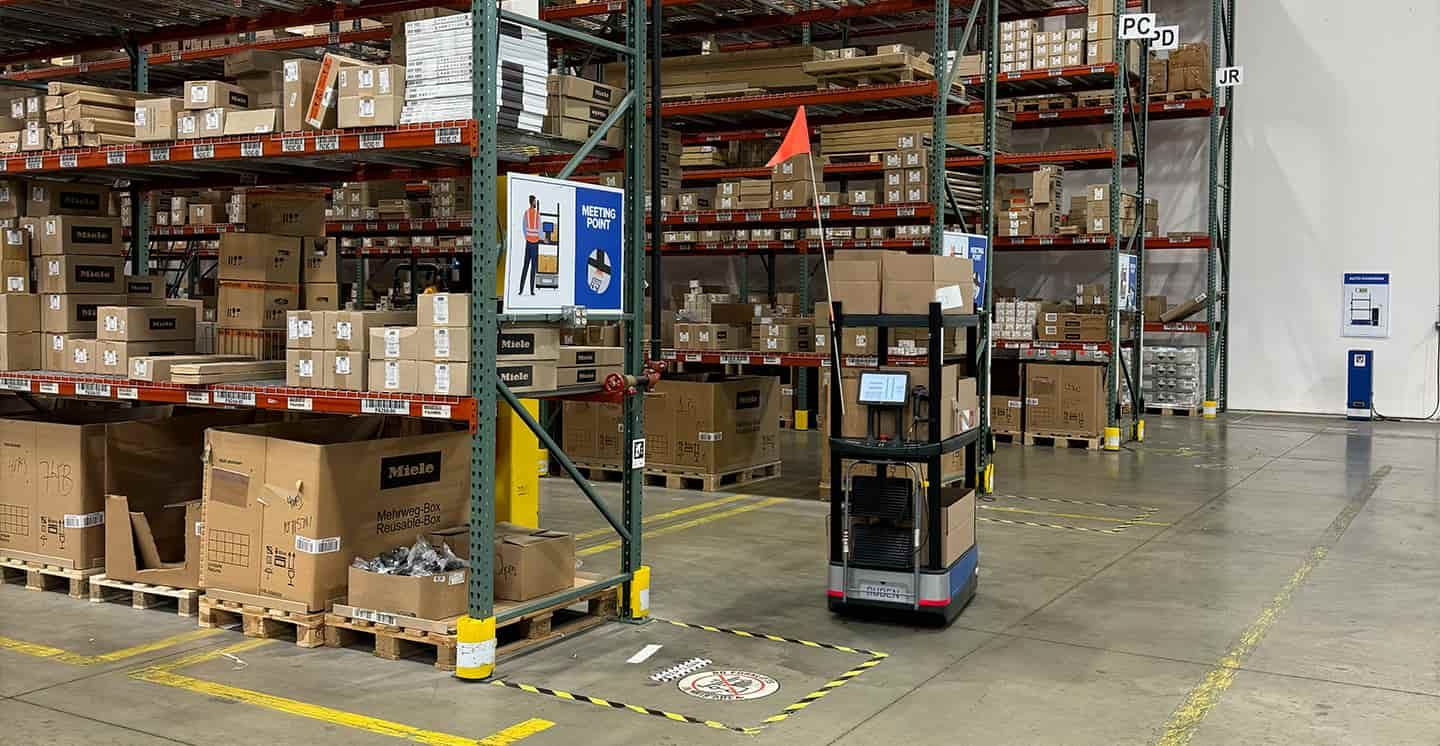The Importance of Efficient Inventory Management
Today’s retail environment is shaped by the expectations of consumers who want products quickly, accurately, and with full transparency. Meeting those demands requires more than warehouse space — it depends on technology-driven retail distribution that helps brands work smarter, respond faster, and reduce errors.
From managing complex inventories to accelerating order fulfillment, technology is the center of successful retail fulfillment services. Brands that invest in systems like warehouse management systems (WMS), automation, and AI-driven tools are better positioned to manage growth, control costs, and stay competitive across both B2B and D2C channels.
At CDS, we help retail brands build stronger operations with retail fulfillment solutions powered by proven technology. With the right systems in place, your business can gain real-time visibility, improve inventory accuracy, and meet customer demands with confidence.
Leveraging Technology for Stronger Retail Distribution
Warehouse Management Systems (WMS) for Retail Success
A WMS for retail operations is more than software — it’s the backbone of an organized, efficient warehouse. With real-time inventory visibility and process automation, a WMS helps businesses:
- Maintain accurate stock levels across multiple warehouse locations
- Prevent mispicks and inventory discrepancies
- Track products throughout the storage and fulfillment process
- Support multichannel retail fulfillment — whether orders come from online marketplaces, retail stores, or direct-to-consumer channels
For brands managing large SKU counts or complex product lines, a reliable WMS ensures that every item is accounted for, every order is picked accurately, and fulfillment happens without delays.
At CDS, we leverage advanced WMS retail solutions to provide real-time data on inventory levels, product movement, and fulfillment performance, giving brands greater control over their operations.
Integrated Solutions and Reliable Tracking for Smarter Shipping
Retail distribution doesn't end at the warehouse door — reliable transportation is critical for meeting delivery timelines and managing costs.
Reduce shipping costs by selecting the most efficient transportation routes
- Improve delivery speed and reliability across B2B and D2C orders
- Provide real-time shipment tracking for both brands and customers
- Identify potential disruptions early and adjust shipping strategies as needed
A coordinated approach to transportation management helps brands meet the expectations of today’s consumers, whether delivering to a major retailer, distribution center, or residential address.
Automation and Robotics in Retail Fulfillment
Labor shortages and increasing order volumes have made automation a key part of retail fulfillment services. Automating repetitive tasks improves efficiency, reduces errors, and supports consistent service even during peak demand.
Retail brands leveraging automation benefit from:
- Faster order picking and packing processes
- Reduced dependency on manual labor for routine tasks
- Improved accuracy in order assembly and shipment preparation
- Scalable operations that can flex with seasonal demand
For businesses offering online retail order fulfillment warehousing, automation helps handle high-volume e-commerce orders with speed and precision, helping customers receive accurate shipments on time.
Future Trends in Retail Distribution Technology
AI and Machine Learning for Inventory Management
Artificial intelligence is changing how retailers approach demand forecasting and inventory control. By analyzing historical data, market trends, and real-time sales patterns, AI-driven tools can:
- Predict seasonal spikes and product demand more accurately
- Adjust inventory replenishment schedules to prevent stockouts or overstocks
- Identify slow-moving products to reduce excess storage costs
- Provide insights that help brands manage complex SKU portfolios
Smarter inventory management reduces waste, keeps products moving, and supports more responsive retail fulfillment.
The Rise of Micro-Fulfillment Centers
With fast shipping now an expectation, many retailers are turning to micro-fulfillment centers — smaller, strategically located facilities designed to:
- Shorten last-mile delivery distances
- Provide faster shipping to densely populated areas
- Support efficient online retail order fulfillment warehousing for D2C channels
- Reduce pressure on larger regional distribution centers
Micro-fulfillment is especially useful for retail brands competing in e-commerce, where delivery speed and accuracy can influence customer satisfaction and brand loyalty.
CDS continues to support evolving fulfillment models by providing flexible space, scalable services, and technology integrations that help brands meet market demands across both traditional and emerging channels.
Be Ready for What’s Ahead
Retail distribution is constantly evolving, and technology is key to keeping up with shifting consumer expectations, growing order volumes, and complex supply chain demands.
By investing in:
- WMS retail solutions for inventory visibility and order accuracy
- Automation to increase efficiency and reduce manual errors
- AI and predictive tools for smarter inventory planning
- Flexible distribution models like micro-fulfillment for faster delivery
Retail brands can build resilient, scalable supply chains that support both immediate fulfillment needs and long-term growth.
At CDS, we help brands navigate these challenges with reliable retail fulfillment services, supported by technology that keeps products moving — accurately, efficiently, and on time. Contact us today.
Explore More
-
Challenges and Solutions in Retail Distribution
-
Efficiency and Scalability in Retail Warehousing
-
Improving Customer Experience Through Distribution

